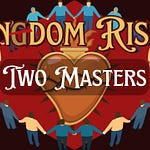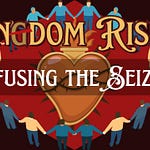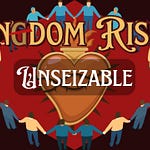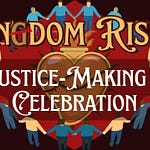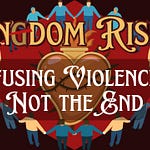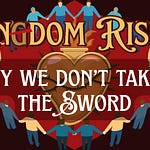We live in a culture obsessed with fairness. The word is heavy with scales, tallies, and invisible scoreboards. Did I do my part? Did they? Am I getting what I deserve? Is someone getting more than me? Fairness sounds righteous on the surface, but when you live inside it, fairness is a trap. It drives us inward, judging ourselves and everyone else against an impossible standard, measuring every crumb, every kindness, every silence.
When fairness rules, love shrinks. We second-guess our own thoughts, scold ourselves for favoritism, and keep our generosity under lock and key so we won’t “give too much.” Fairness whispers that compassion must be rationed, that care must be weighed like coins, that justice is about sameness instead of healing.
But the ancient call of Spirit is not fairness. It is equity.
Equity is not about everyone receiving the same thing. It is about giving each person what they need. When I stop worrying whether I’ve distributed care evenly across every relationship, and instead ask, “What does this one need from me right now?” something shifts. Relief floods in. My shoulders unclench. I no longer have to police every interaction or keep score of invisible debts. I am free to meet the human being in front of me.
That is the heart of justice. Justice is not sameness. Justice is not balancing a ledger. Justice is seeing clearly and acting rightly. It is equity.
The Trap of Fairness
Fairness has become one of the most cherished myths of our time, especially in societies built on meritocracy. We are told from childhood: if you work hard, if you follow the rules, if you wait your turn, things will be fair. But fairness is fragile. It crumbles the moment we see how wealth, health, opportunity, and power are not evenly spread. It fractures when we notice how privilege tilts the scales. And it collapses entirely when we realize that life itself is not fair: illness, disaster, and tragedy visit without rhyme or reason.
When fairness fails, many double down. We chase punishments and rewards, lawsuits and policies, hoping someone, somewhere, will enforce the rules of fairness. But the more tightly we cling to fairness, the more bitter and exhausted we become. The constant comparison, who has more, who has less, who “deserves” what, keeps us in a state of judgment, always suspicious, always resentful.
Fairness was never enough.
The Relief of Equity
Equity breaks the spell. Equity says: stop measuring. Stop comparing. Look at the person before you and ask, “What do they need?”
Some need encouragement, others need listening, others need space. Some need bread for their table, others need a place to belong, others need protection from harm. Justice is not everyone receiving the same thing. Justice is everyone receiving what will allow them to live, to heal, to flourish.
When we shift to equity, the anxiety of fairness dissolves. Instead of wondering, “Am I doing enough for everyone equally?” we ask, “Am I present, honest, and caring in this relationship?” It becomes practical. Relational. Human.
That first step is where the practice begins: check your relationships. Are you being equitable with those around you? Not fair, but equitable. Does your friend who is grieving receive your tenderness, even if that means you cancel plans with someone else? Does your coworker who is struggling receive your help, even if it takes more of your time than another? Do you allow yourself to receive what you need, even if someone else doesn’t understand?
This is equity. It feels like a deep sigh, a release from the tyranny of fairness.
From Personal to Communal
The small shift in our relationships points toward a larger horizon. If justice is equity in the personal sphere, then justice is equity in the communal sphere as well.
When we give only what is fair, society becomes rigid. Schools, hospitals, workplaces, and governments end up enforcing sameness, not care. But when we design systems with equity in mind, we look at who has been excluded, who has been harmed, who carries heavier burdens, and we act to rebalance.
Equity notices that some need ramps, others need interpreters, others need affordable medicine, others need safety from violence. Equity doesn’t ask who deserves it. Equity doesn’t weigh worthiness. Equity simply acts to provide what is needed so that everyone can participate fully in life.
To treat one person unjustly is to treat everyone unjustly. Because once we decide that someone can be excluded, neglected, or silenced in the name of fairness, we set a precedent that eventually comes for us all. Equity protects the whole by tending to the part.
Scarcity and the Lie of Deservedness
One of the deepest obstacles to equity is the myth of scarcity. We are taught to believe there is not enough: enough food, enough time, enough money, enough love. And in a world of scarcity, equity sounds threatening. If they get what they need, will there be enough left for me?
But scarcity is a lie. Our world already produces more food than we consume, more wealth than we distribute, more capacity for care than we unleash. Scarcity is an invention of empire, a tool to keep us grasping and competing instead of sharing and creating.
Deservedness is scarcity’s twin. We spend endless hours debating who deserves help, who deserves opportunity, who deserves compassion. But nobody deserves anything. Deserve is the wrong question. The right question is: what do they need?
When we stop asking “Who deserves?” and start asking “What is needed?” the world changes. Compassion flows more freely. Communities grow stronger. Justice becomes possible.
Living Into the Possible
The call is not abstract. The call is practical. Begin with your relationships. Ask what equity looks like in your friendships, in your family, in your community. Practice it, even in small ways. Notice the relief it brings.
Then lift your eyes. See the wider society. Ask: who around me is not receiving what they need to flourish? What can I do, in partnership with others, to change that? Sometimes the answer is mutual aid. Sometimes it is advocacy. Sometimes it is simply showing up and standing alongside the vulnerable.
Justice is not waiting for laws to be rewritten or for leaders to act. Justice is practicing equity now, in our daily lives, in our choices, in our commitments.
The dream is an equitable society. A world where no one is left behind, no one is cast aside, no one is told to earn their right to live. Every small act of equity is a seed of that world. The more seeds we plant, the more inevitable that world becomes.
A Call to Action
So here is the call: stop chasing fairness. Stop policing yourself with invisible scales. Stop rationing compassion. Let relief wash over you.
Practice equity in your relationships. Ask what each person needs, and respond with love.
Then widen your practice to your neighborhood, your community, your world. See where equity is missing, and act.
Because justice is not a concept. Justice is a way of living. Justice is equity. Righteousness is right relationship. And the Spirit who made us longs for both.
To treat one person unjustly is to treat everyone unjustly. But to treat one person equitably is to open the door for justice to grow everywhere.
May we live as if an equitable world is already possible. And in our living, may we help bring it into being.
Now find a quiet place. Sit comfortably. Close your eyes if you wish.
Take a slow, steady breath in.
Breathe in calm.
Breathe out calm.
Let your body settle. Let your spirit rest in the present moment.
Now, softly speak these words aloud, letting each phrase open like a seed within you:
May I treat myself with equity,
giving myself what I need in this moment.
May I treat my loved ones with equity,
giving them what they need in this moment.
May I treat my friends and community with equity,
giving them what they need in this moment.
May I treat my enemies with equity,
giving them what they need in this moment.
Rest again in silence. Feel how each phrase widens the circle of your care, from self, to loved ones, to community, to those who oppose you.
Stay here as long as you need. Let the practice reshape your breath, your thoughts, your life.
Thank you for Tips / Donations:
Substack: https://www.creationspaths.com/
This essay grows out of the podcast episode **“Justice, Not Judgment: Equity and Right Relationship.”** It is not a transcript, but a written reflection that expands on the themes we explored in conversation. If you’d like to listen to the full discussion, you can find the episode above.
New to The Seraphic Grove learn more
For Educational Resource: https://wisdomscry.com
Social Connections:
#christopagan #creationspirituality #justice #equity #rightrelationship
Chapters:
00:00 Introduction to Justice and Righteousness
01:34 Understanding Hebrew Concepts of Justice and Righteousness
02:41 Right Relationship and Moral Laws
04:34 Modern Interpretation of Ancient Laws
05:51 Equity vs Equality
07:29 Questioning Deserving and Worth
08:52 The Myth of Scarcity
11:45 Reimagining Work and Society
14:22 Education and Creative Freedom
19:49 Embracing Change and Moving Forward
23:02 Closing Prayer and Outro



